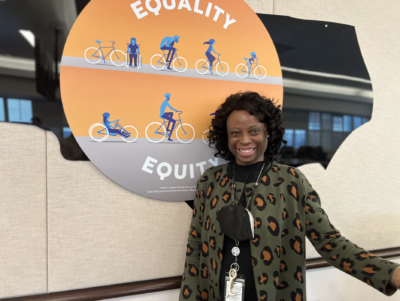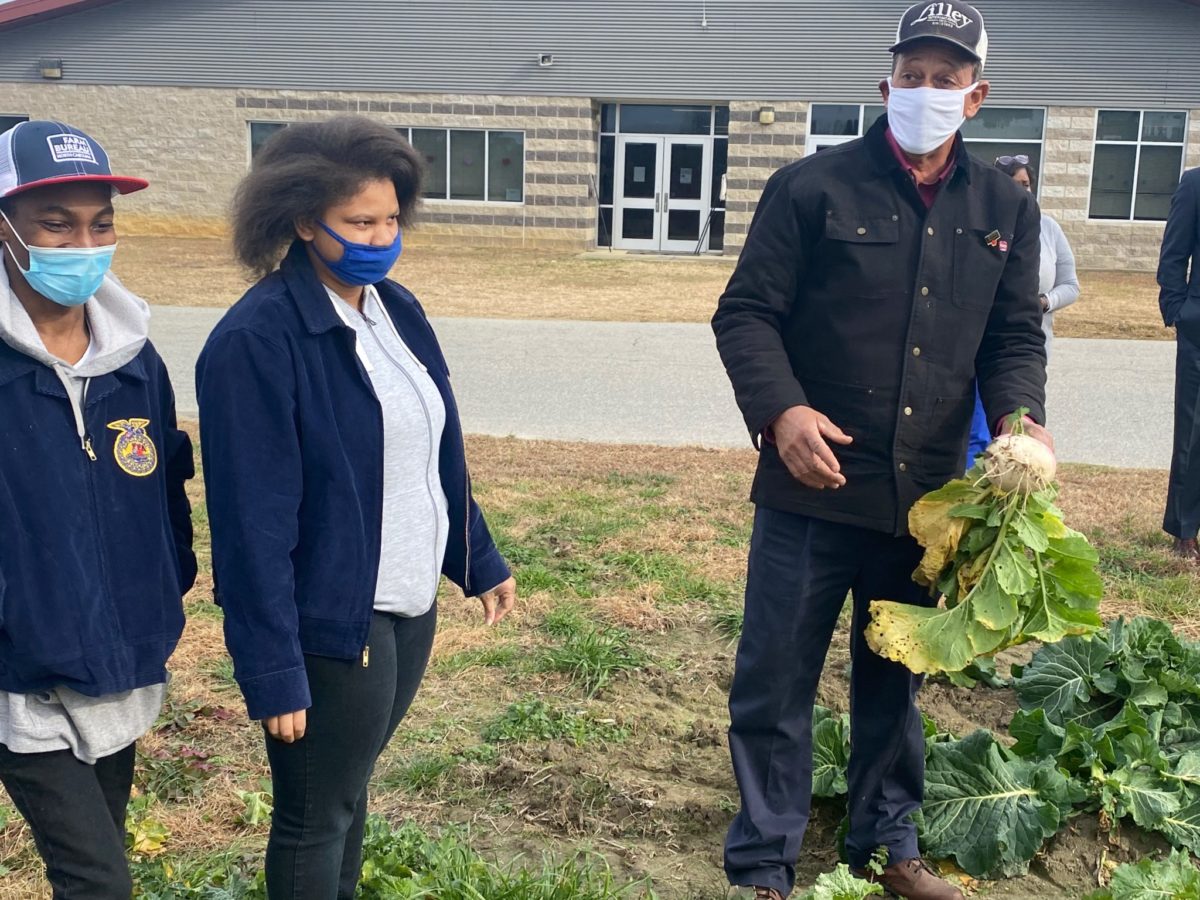
Halifax County Schools Superintendent Eric Cunningham tells his students that when they get their first check, they should lay a $20-dollar-bill down on their mom’s pillow. He tells them not to say anything. Just lay down the money and leave.
When a student follows his directions, he always hears about it. The student comes back and tells him that all of a sudden, their mom is cooking more, and letting them use the car.
“And I say: Do you know why? It’s because you’re a contributor,” Cunningham said. “That’s what we’re trying to build here.”
Cunningham is talking about things like the Lighthouse Solar Energy Camp, a collaboration between his school system, the North Carolina State Energy Office, NC A&T State University and other partners.
Juniors and seniors in high school can go through a 96-hour training program, teaching them about photovoltaic and solar energy so that they can move on to an internship with a solar company that pays them $15 an hour for 80 hours.
He’s also talking about Green Leaf Farm, a school-based farm located at Enfield Middle School and run by students there and from Southeast Collegiate Preparatory Academy.
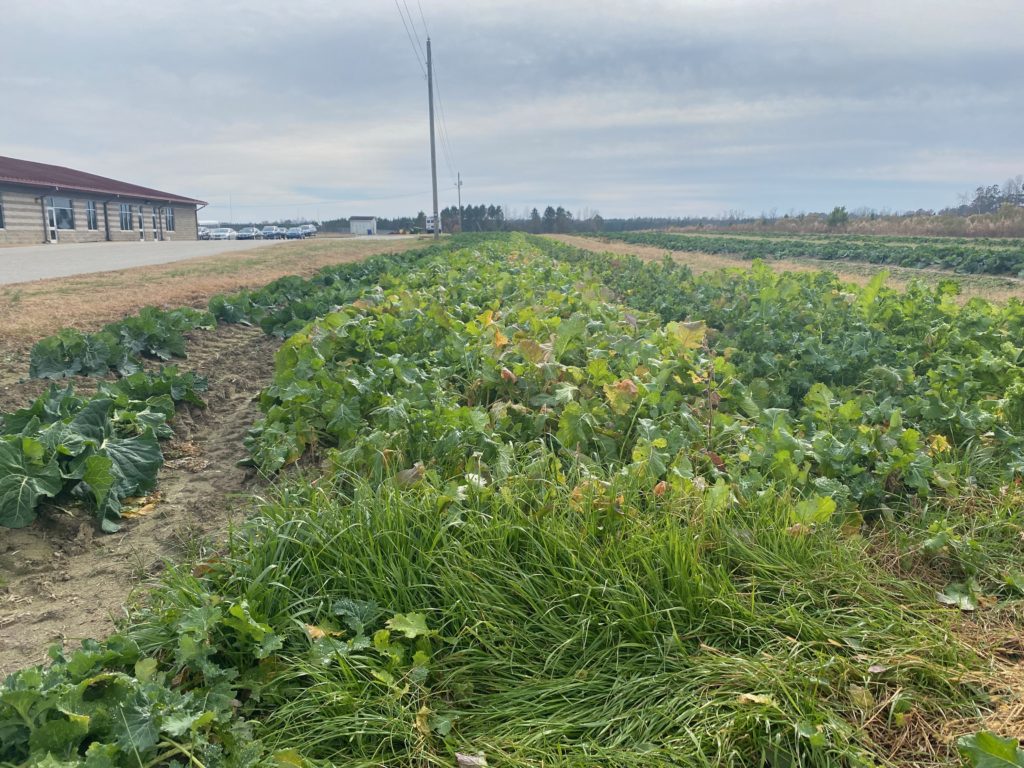
Cunningham said the district is trying to build a heating and air conditioning vocational program for students in his district. He’s hoping to establish a pre-apprenticeship program that will lead from high school into community college.
He wants 100% of the students in his district to eventually be enrolled in the local community college through the Career and College Promise program, which allows high school students to take community college classes while they’re still in high school.
“Let’s just be real. We’re only looking at about 10% to 15% of my children ready to go to a four-year college and compete. That’s my babies and I’m okay with that,” he said. “And so, the majority of my kids need to have that community college experience to fill in those gaps. And then all I want to do is couple that with credentials.”
Lighthouse Solar Energy Camp
Maria Castanon, a senior in Halifax County Schools, said that when she heard teachers talking about the Lighthouse Solar Energy Camp and how it offered certifications that could be useful in getting jobs, she was interested.
“We were about to graduate too. So we wanted to know about different careers as well,” she said. “So that offered us the opportunity to learn about new things.”
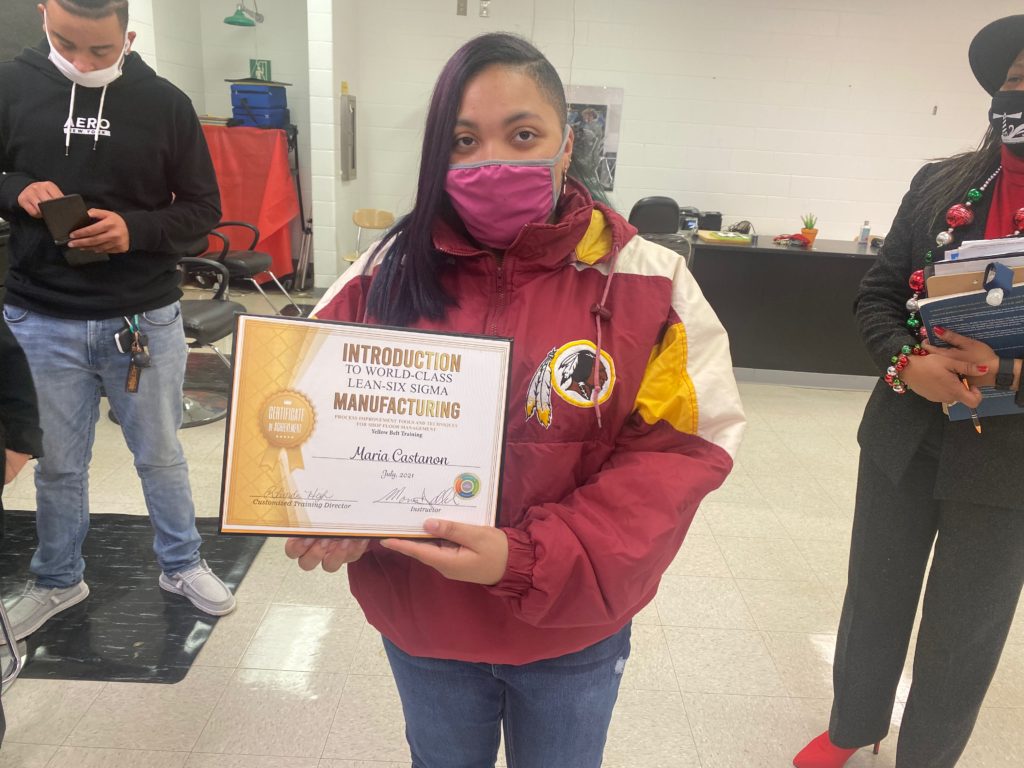
Castanon and the other participants in the program finished with a Solar Workforce Certificate, as well as three certifications: OSHA 10 – Construction, Lean Six Sigma Yellow Belt Level, and Working Smart.
“The Lighthouse Solar Energy Camp was another opportunity for our district to breathe life into our mission statement and provide meaningful experiences for our students,” said district Assistant Superintendent Tyrana Battle.
The district’s mission statement is: “To create a supportive and positive learning environment to address the needs of the whole-student in partnership with educators, staff, parents and communities.”
In addition to the workforce training, the program is also helping students develop other skills, according to Battle. The program is one highlighted in the Department of Public Instructions new Promising Practices Clearinghouse.
“Students learned the value of implementing soft skills to support the mission and vision of an organization,” she said. “The students learned how to work as a cohesive unit to get projects completed within a given span of time as they address clean energy in Halifax County.”
Battle’s daughter, Zaniya, a senior at Halifax Early College High School — located at Halifax Community College — and a participant in the program, echoed that sentiment.
“It taught us, when you go into the real world and you’re going to get a job, like what are you supposed to say in an interview, like questions to ask, how to prepare a resume and a cover letter,” she said. “It taught us a lot.”
Battle said the district is strategic with programs like the camp. The goal isn’t just to get the students trained to go into one particular field, it’s to get them to start to think generally about what it takes to go out into the workforce.
“We want the students to know the why. Why do you do certain things? What jobs can you do with this? What skills will you have? What credentials? What trade?” she said.
Green Leaf Farm
Green Leaf Farm is a way to both empower students as well as keep them interested in school. The nine-acre farm grows everything from broccoli to squash and even watermelon.
According to the farm website, it is the first North Carolina school district farm to get GAP Harmonious Certification, which means the food grown there can be served in district cafeterias.
“We may work nights, weekends, or on holidays, and we might have orders from people, and we’ll go out and cut the produce ourselves and give it to them,” said Dauntavious Cunningham, an 11th grader who works at the farm.
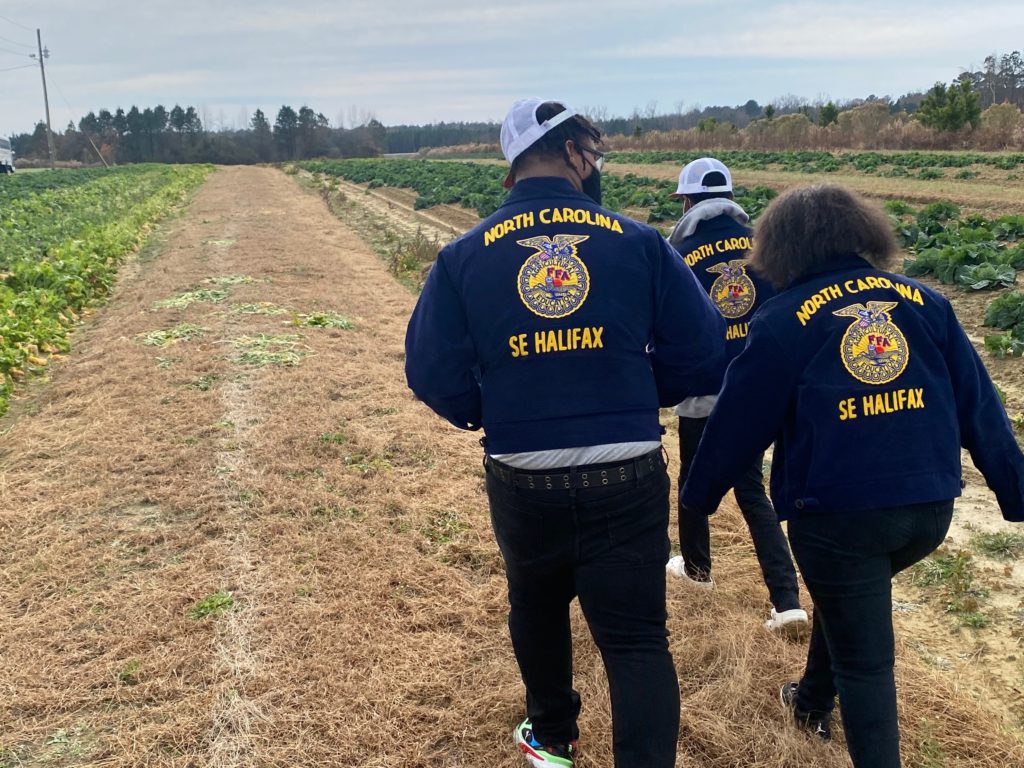
The farm started around 2015. The students sell the produce at a mobile farmer’s market, and the proceeds pay for their compensation. Battle said it was the district’s first “Earn while you Learn” program.
“The program was designed to make education more relevant for our students as they addressed the food shortages and insecurities in the district,” she said. “As a Tier 1 county, we constantly teach students how to turn challenges into opportunities, and this was one way in which the students could contribute back to the community.”
Working at the farm, she said, students learn about the entire food-chain “from labor to table.”
The leaders of Halifax County Schools call it a lighthouse district, because it’s shining a way forward for other Tier 1 counties, which are the most economically distressed in the state.
Cunningham said he wants to keep building trade programs like Green Leaf and the Solar Lighthouse Camp. And he wants for those programs to feed into the community college.
“I really need help with building those bridges and making sure that these pathways can be replicated to other LEAs (Local Education Agencies),” he said. “That’s what the lighthouse means to us.”
But these programs also mean very tangible things to the students right now.
During a visit to Enfield Middle School, Cunningham and Battle came upon a meeting of the Future Farmers of America. In this case, it was students who participate at Green Leaf Farm along with their instructor Reginald Cotten.
Cunningham started to quiz the students about what they’re doing at the farm.
Why do they like working? One girl says it keeps her busy, keeps her mind off other things.
Why do the kids come to school every day? One student says she comes so that she can work at the farm.
What is it like to be able to earn money, to contribute to their families? The students says that makes them feel good and makes their parents proud.
“And what does that make you want to do?” Cunningham asks finally.
“Keep going,” they say in unison.


